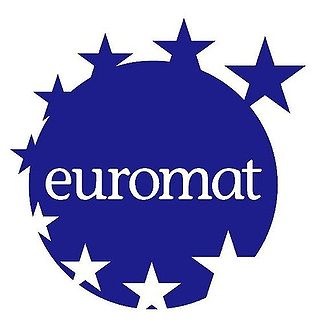Euromat comes to something of a crossroads on May 27. The organisation, which has seen an erosion of member countries over the past few years, elects a new president at its annual meeting in Amsterdam.

At the end of 2014 Belgium’s UBA trade association dropped out of membership and, with it, some of the heart of the organisation, for Euromat has its headquarters in Brussels, home of the European Union. The UBA was also a founding member organisation.
That brings membership down to 11 trade associations – at its height, Euromat boasted 21 – and InterGame’s understanding is that two of those remaining are ineligible to vote, having failed to pay their dues to the organisation.
Euromat, founded in 1979, was intended to be the spokesman of the European land-based amusement and gaming industry. Dedicated to the street market, it sought to bring together all of the separate member associations to speak with one voice to, in particular, the European Union. It set out to help protect the industry from potentially damaging legislation and help individual countries to work with their domestic governments to foster good relations and improve the lot of suppliers and operators.
Without, however, any possibility of EU-wide legislation for the industry, there has been comparatively little for the organisation to actually do. It has monitored, reported and even lobbied on certain subjects of common interest, such as money-laundering regulations, but essentially, the “watchdog” brief has foundered on the back of inertia.
It should be said immediately that few, if any, of the current members would welcome Europe-wide AWP legislation, infinitely preferring that the status remains quo, as the fear persists that any interfering with current individual laws would leave countries who enjoy regulations that enable reasonable levels of commercial success, with something unpalatable.
The outgoing president, Anette Kok of the Netherlands’ VAN trade association, has worked hard to keep the organisation together and focused, and much will now depend on the quality of her replacement. In the frame are understood to be Helmut Kafka of Austria’s Automatenverband, an “industry politician” of considerable experience, and Maria José Gallardo of Spain’s FACOMARE. Both may have their attributes, although Kafka’s fluency in English will certainly be an advantage. There is also always the possibility that the popular Ms Kok will agree to another term in office.
A positive factor is that apparently John White, the well-regarded BACTA CEO from the UK, is up for first vice president. Who wins will probably be down to the “big four,” Great Britain, Germany, Spain and Italy, the principal AWP-operating countries of Europe, each of whom – because of their industry size – has four votes. Of the remainder, Croatia, Denmark, Montenegro, Netherlands, Romania and Serbia, the intentions are not clear. Most insiders suggest that whatever happens there may still be some leakage of members, notably Denmark and Croatia.
It may be time for wholesale changes in the organisation, others suggest. Should the presidency even come from within the trade association leadership? Should the organisation appoint an outsider as a professional CEO and run Euromat like a commercial business? It is certainly financially sound, we understand, with around €250,000 in the bank.
Whatever happens on May 27, Euromat will certainly need strong and vibrant leadership from someone with the personality to give positive direction.

